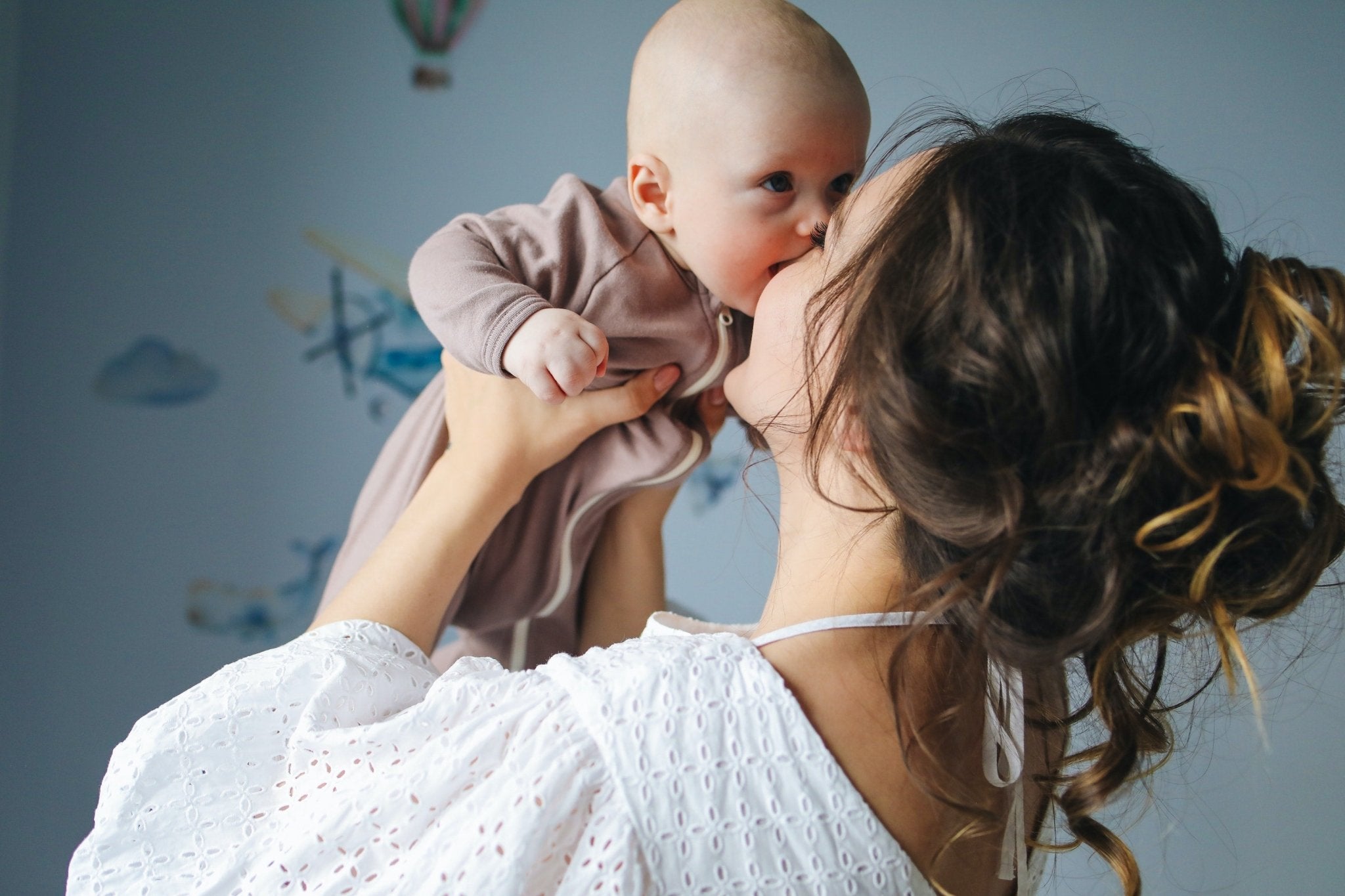
Your Child and the Daily Routine: How to Organize the Day
Being a parent is one of life's most rewarding experiences, and it can also be one of the most challenging experiences. With so many tasks to juggle and the need to care for a young child, it can be difficult to maintain a regular daily routine. However, following a daily routine is essential for your child's healthy development. In this blog post, we'll explore how to organize his day to maximize productivity, time management tips for busy parents, and how to put a beneficial routine in place for your child. We will also look at some activities for babies and toddlers to help them develop. With these tips and tricks, you will be able to create a daily routine that works for you and your family.

Put the Right Routine in Place
As a new parent, maximizing your child's growth and development can be overwhelming. Luckily, creating a routine doesn't have to be a daunting task. Start by determining your goal for the day, choose an approach that works best for your family, and structure something that grows with your child.
To further encourage growth and development, involve your child in decision-making, discussion and developing plans. Incorporate fun learning activities and involve them in household activities. Finally, establish a bedtime routine, followed by some structured free playtime. Track activities with a simple daily routine chart to set achievable goals each day without feeling overwhelmed
.
Creating Schedules and Habits for Child Development
Creating a daily routine for your child is an important part of his development. Establishing schedules and habits will help them become independent and organized, as well as teach them self-discipline. It's also important to recognize that every child is unique and has different needs, so it's important to tailor a routine that works for their family. Here are some tips on how to get started:
First, understand your child's developmental needs, including age, developmental stage, interests and energy levels. This will help you create an appropriate daily routine that meets their individual needs. Then, establish a daily morning and evening routine that meets both their interests and needs; it should be realistic enough that you can follow it day after day.
Once you have the basics down, create a coherent time plan that takes into account all the activities needed during the day, such as rest time or free time; This helps minimize distractions throughout the day while allowing everyone to take breaks when needed. Also, identify any potential obstacles that could disrupt his/her daily plan, such as naps or meals; tackle these issues head on so they don't become a big problem later!
Most importantly, though, establish healthy habits for eating, sleeping, physical activity and other activities such as play. Encourage self-discipline and independence in your children by making sure they also do household chores or chores – this teaches them responsibility as they help out with household chores! Additionally, integrating positive reinforcement into your routine helps promote successful task completion. Finally, ask your child about how to manage his or her time, including homework!
By following these steps, you can design a daily routine tailored to your family. Maintaining consistency helps children feel more confident while still leaving room for flexibility if needed. Dividing each day's tasks into manageable chunks also makes it easier! With practice and consistency, creating schedules and habits becomes a natural thing: giving your children the tools they need for life!
Organize Your Days For Greater Productivity
Establishing a daily routine for your child can have huge benefits for their overall health, well-being and development. A predictable schedule helps children feel safe and less anxious, as they know what to expect each day. A daily routine also leads to better alertness, increased productivity, better overall health, and better sleep patterns.
When creating a successful daily routine for your child, it is important to be structured but flexible. Take your child's age and individual needs into consideration and plan activities or activities accordingly. Planning ahead for activities that require more time or preparation is a good idea, and be sure to include breaks throughout the day to give yourself time to recharge. Positive reinforcement is essential.
Physical activity is also important and helps children stay healthy while developing gross motor skills such as running, jumping and climbing. Incorporating physical activity into your child's daily routine can lead to other positive outcomes such as improved concentration levels and improved sleep patterns. There
transition between activities is another important aspect to consider. Warning your child ahead of time about upcoming changes or providing visual cues can make transitions smoother. Activities can range from outdoor games to indoor educational games, depending on your child's preferences. Mixing up different types of activities keeps things interesting and helps keep you motivated.
In conclusion, creating a successful daily routine for your child requires planning but it doesn't have to be difficult. Write down the desired tasks/skills and talk to your child about the specific goals they would like to achieve each week. Incorporate fun activities into the plan and allow some flexibility within the structure if necessary. Regularly monitoring progress allows for adjustments and incentives can help maintain motivation. With clear expectations set ahead of time, you will soon find yourself achieving success.
Establish a Routine Structure to Help Your Child Succeed
Establishing a structured routine is essential to helping your child succeed. For parents, keeping up with their children's ever-changing needs can be difficult, which is why having a set structure can help bring balance and order to the day. With a daily plan tailored to meet your child's needs, your child can reap the benefits of better sleep, better learning and better emotional regulation.
The first step in creating an effective routine is to understand your child's age and developmental stage. This will give you an idea of how much time you should spend on each activity during the day. You should also take into consideration any special needs or disabilities that may need to be accommodated when planning their daily activities. Once that's taken into consideration, it's time to get started!
When building their daily routine plan, be sure to factor in meal times, school responsibilities (if applicable), bedtimes, and even fun activities like playing outside or reading books together. It is important that all family members contribute by spending time on their own activities and helping with household chores such as washing dishes or folding laundry together. Also, involve them in assigning tasks so that they feel responsible for their success - this can motivate them even more!
To ensure they stay busy all day while still having enough rest and relaxation time, incorporate smaller parts into larger tasks so they can focus on one part at a time rather than getting overwhelmed by everything there is to do. Set specific goals each day, including completing tasks within a set amount of time, and carefully monitor screen time if necessary, as excessive screen use has been linked to health problems in children. Also, remember to reward completed activities to encourage positive behavior – stickers or dots work well!
By incorporating these tips into your daily baby plan, you are not only increasing your chances of success, but you are also creating positive habits that will stay with you throughout adulthood. Good luck!
Time Management Tips for Busy Parents
As a busy parent, mastering the art of time management is crucial to maintaining a productive and balanced daily routine. Balancing work and family while meeting your child's needs may seem daunting, but establishing a consistent routine is the first step in ensuring a structured and productive environment. Break down larger tasks into smaller, achievable goals and identify the most effective times of day for learning, doing activities, or playing with your child. Balance the schedule with breaks, activities, and family time to keep everyone from feeling overwhelmed or exhausted.
Prioritizing sleep for both children and adults is also essential to maintaining a healthier family overall. It's important to teach your child how to prioritize tasks, set short- and long-term goals, and break longer tasks into manageable chunks throughout the daily routine. Using technology to track their progress throughout the day and teaching them to tell the time can also be helpful. Encouraging time management reading for children can also help them better understand how to organize their day efficiently.
Plan ahead by creating lists of daily tasks and organizing them into blocks of time assigned to specific tasks to make things easier at crucial moments. Analyzing how each hour is spent as a family can provide insight into how to structure each day effectively, with empha




Comment
This site is protected by hCaptcha and the hCaptcha Privacy Policy and Terms of Service apply.